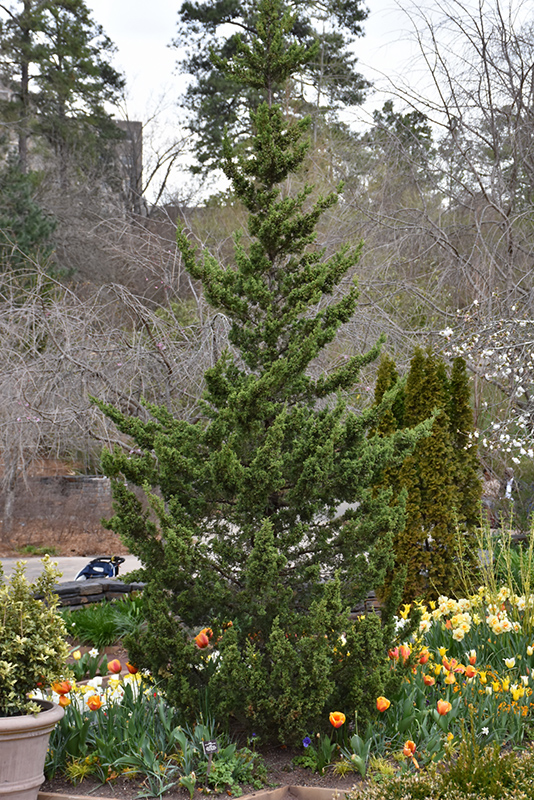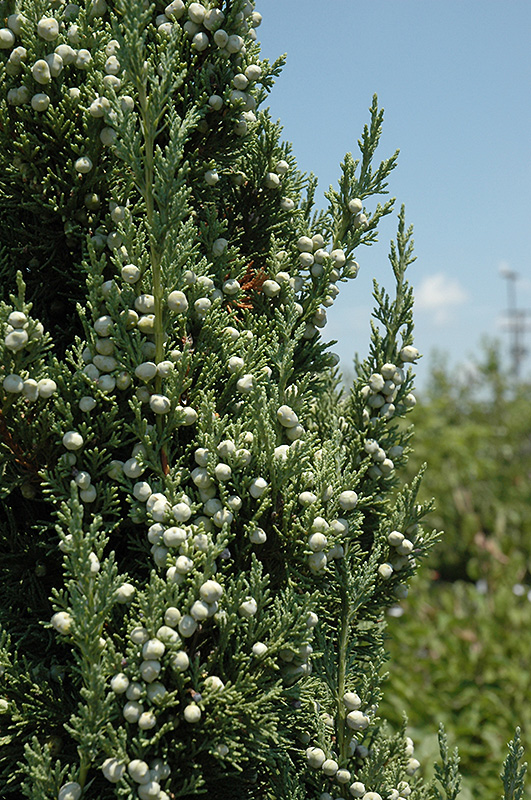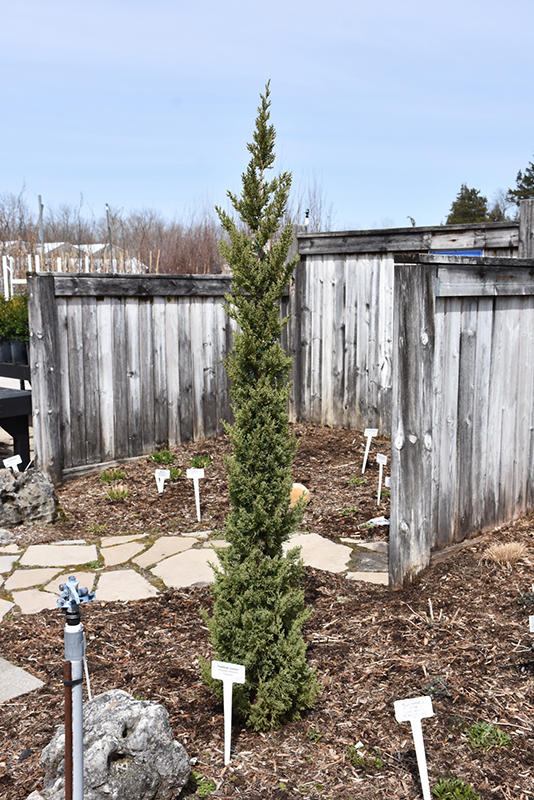Plant Finder
Trautman Juniper
Juniperus chinensis 'Trautman'
Height: 19 feet
Spread: 4 feet
Sunlight:
![]()
Hardiness Zone: 4
Description:
A narrow columnar evergreen shrub, makes a great accent or articulation plant in home landscapes; interesting blue-green needle-like foliage and extraordinary, large silver-blue berries; a very versatile landscape plant, needs full sun
Ornamental Features
Trautman Juniper is a dwarf conifer which is primarily valued in the landscape for its rigidly columnar form. It has grayish green-variegated bluish-green foliage. The scale-like sprays of foliage remain bluish-green throughout the winter. It produces silvery blue berries from mid summer to late winter.
Landscape Attributes
Trautman Juniper is a multi-stemmed evergreen shrub with a narrowly upright and columnar growth habit. It lends an extremely fine and delicate texture to the landscape composition which can make it a great accent feature on this basis alone.
This is a relatively low maintenance shrub, and is best pruned in late winter once the threat of extreme cold has passed. Deer don't particularly care for this plant and will usually leave it alone in favor of tastier treats. It has no significant negative characteristics.
Trautman Juniper is recommended for the following landscape applications;
- Accent
- Vertical Accent
- Hedges/Screening
- General Garden Use
Planting & Growing
Trautman Juniper will grow to be about 19 feet tall at maturity, with a spread of 4 feet. It tends to fill out right to the ground and therefore doesn't necessarily require facer plants in front, and is suitable for planting under power lines. It grows at a slow rate, and under ideal conditions can be expected to live for approximately 30 years.
This shrub should only be grown in full sunlight. It is very adaptable to both dry and moist growing conditions, but will not tolerate any standing water. It is not particular as to soil type or pH. It is highly tolerant of urban pollution and will even thrive in inner city environments. This is a selected variety of a species not originally from North America.








